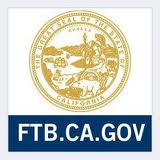
For Immediate Release
tel 916.845.4800 | Public Affairs Office
cell 916.204.8026 | John Barrett
John.Barrett@ftb.ca.gov
(Sacramento)–With the tax season upon us, the Franchise Tax Board (FTB) is reminding taxpayers to be wary of theft ploys involving scammers attempting to mimic FTB to obtain access to your personal information.
“Do not give out social security, bank or credit card numbers over the telephone or by email to anyone who cannot verify they are FTB employees,” warned State Controller and FTB Chair John Chiang. “Ask the FTB agent to confirm information on the tax notice the FTB mailed to you, or hang up and contact the FTB immediately to talk to a live agent.”
FTB has heard from people who received phone calls from scammers impersonating the IRS, telling the would-be victims that they owed taxes and, if not paid, they would be arrested. These taxpayers were also told that the State of California would do the same. The scammers asked about their personal information and how much money they could immediately pay.
This is the second warning in recent months that FTB has issued. In October, FTB alerted the public of a report that scammers were contacting elderly people in Beverly Hills and informing them they received a red light traffic ticket that was referred to FTB for collections. The scammer instructed the victims to load money on a prepaid debit card and send it to a bogus address. The scammer refers victims to an actual FTB phone number for reference.
Other scammers claim to represent FTB to lure people into revealing personal and financial information. This is called “phishing” and is aimed at getting personal information to commit identity theft. These types of scams often involve an email that masquerades as offering to check the status of your state income tax refund.
State Controller John Chiang has partnered with nonprofit groups and other state offices to help people understand current scams plaguing consumers and taxpayers. He has held more than a dozen events designed specifically to help seniors protect their financial information – more information on those seminars can be found at http://www.sco.ca.gov/californiastrong.html
FTB takes the safety and security of taxpayer information very seriously. If anyone receives a questionable contact from FTB, they should consider the following:
- While FTB calls people who owe taxes, FTB will never ask taxpayers for personal identification numbers, passwords, or similar access information for credit cards, bank accounts, or other financial information.
- If you know you don’t owe taxes or have never received an FTB billing notice, you can verify your FTB account information by accessing MyFTB Account or call FTB directly at 800.852.5711 to review their accounts.
- FTB criminal investigators never solicit payment from debtors under the threat of incarceration.
- FTB does not have the ability to process funds from third-party issued debit cards, prepaid credit cards, or wire transfers.
Taxpayers should only make state tax payments to FTB through its normal payment channels: online Web Pay or credit card services; or by mail through personal check, money order, cashier’s check, or Western Union Quick Collect payments. Taxpayers may also visit one of our field offices for assistance. All field offices accept payments by personal check, money order, or cashier’s check. Credit card payments are accepted at our Los Angeles and Oakland Offices. Cash payments are accepted at our San Diego, Santa Ana, San Francisco and Sacramento Offices only.
For more tax scam information, please see FTB’s Top Twelve Tax Scams publication and Information Privacy policy, both available online at ftb.ca.gov.
The IRS reports similar scams and provides consumer alerts at its website at www.irs.gov.
#####
FTB administers two of California’s major tax programs: Personal Income Tax and the Corporation Tax. FTB also administers other non tax programs and delinquent debt collection functions, including delinquent vehicle registration debt collections on behalf of the Department of Motor Vehicles, and court–ordered debt. Annually, FTB’s tax programs collect more than 65 percent of the state’s general fund. For more information on other taxes and fees in California, visit taxes.ca.gov.
For more information on other taxes and fees in California, visit:taxes.ca.gov
